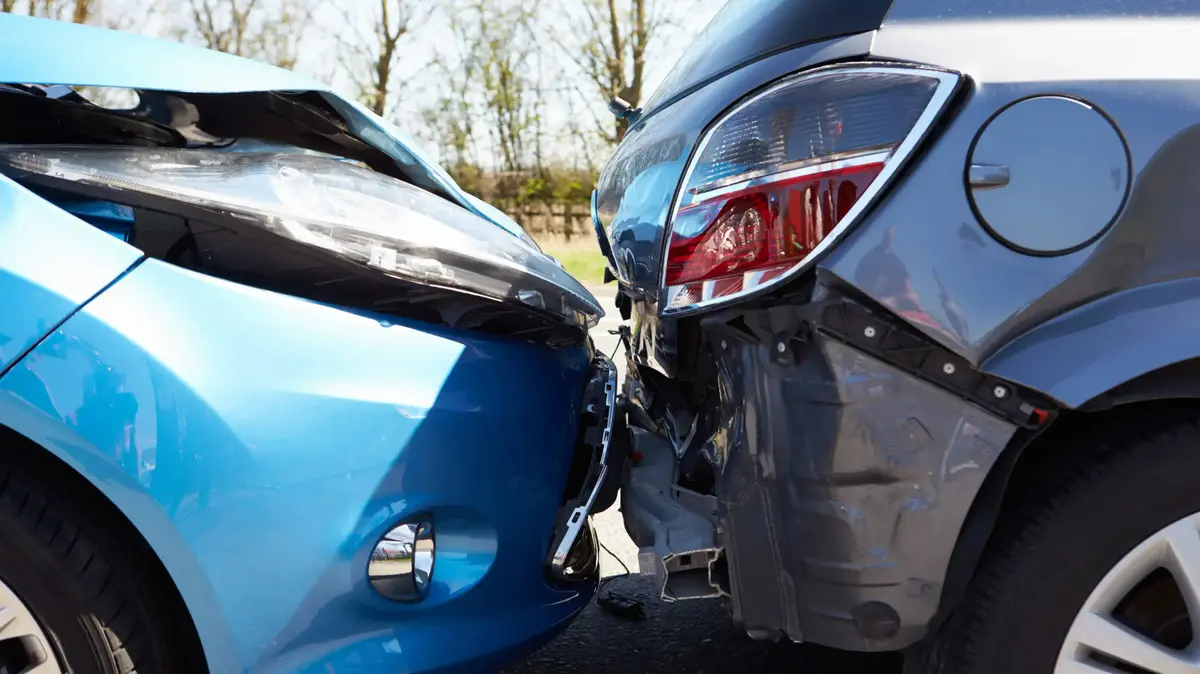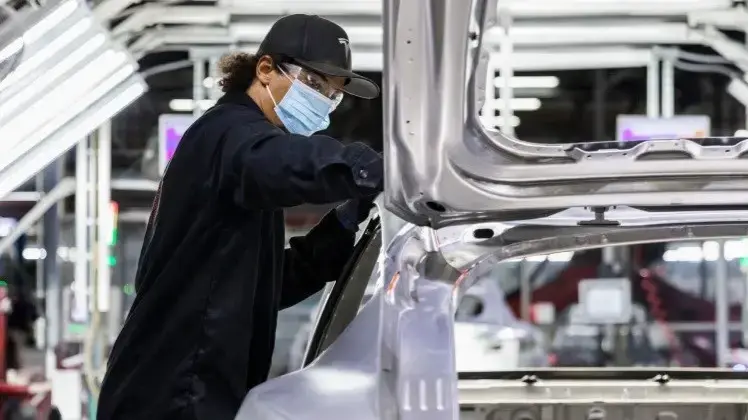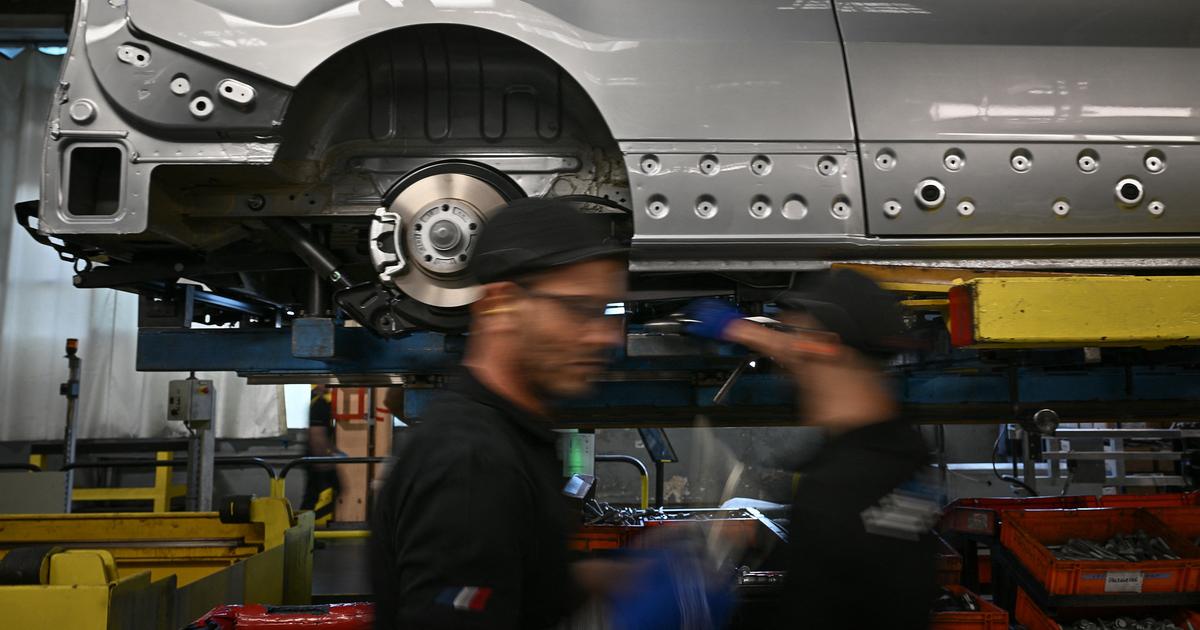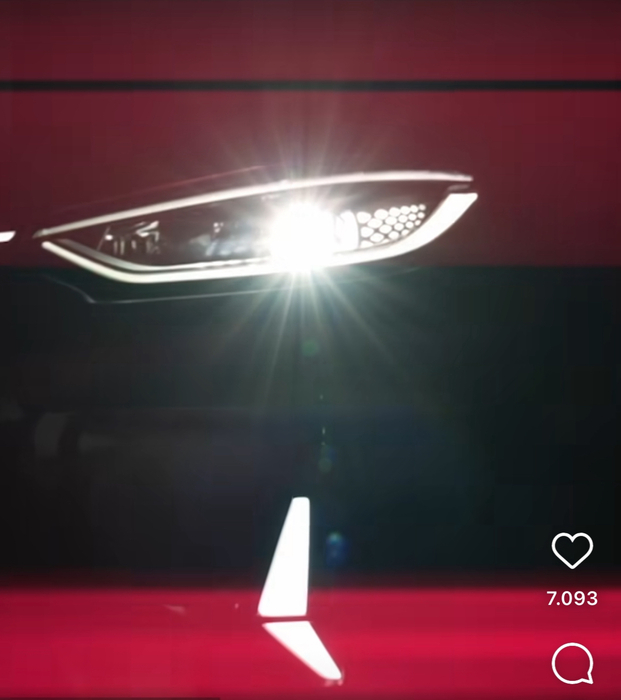news
News in Israel
Events in Israel
A slight blow to the bumper: Contrary to expectations, the Corona virus did not stop the car market
Despite the uncertainty and economic crisis, the shrinking car market was smaller than expected, and the average car price even went up.
Israelis, unable to vacation and disappointed with public transportation, preferred to invest in vehicles in 2020, when conditions around them change.
Question: Will the celebration continue next year as well?
Tags
vehicle
2020
Car market
Keenan Cohen
Friday, 01 January 2021, 20:50
Share on Facebook
Share on WhatsApp
Share in general
Share in general
Share on Twitter
Share on Email
0 comments
Netanyahu: We will strive to have as many vaccines as possible ...
Erdogan: We are interested in improving our relationship with ...
A poster by Qassem Suleimani was vandalized in Gaza on 31.12.20
The designated commissioner, Superintendent Yaakov Shabtai: "Excited towards ...
After 48 years: Britain officially leaves the Union ...
The Director General of the Ministry of Health estimates: Vaccines for the general public ...
Netanyahu congratulates the millionaire vaccinated against Corona: "Reads ...
Summary of a police year on cellular enforcement.
12/30/20
Suspected murder in Lod: A lifeless man is in a car with ...
Arrest of a young man who murdered his mother in the streets on 30.12.20
The new Peugeot 208 (Ronen Topelberg)
If you were to tell car importers in any normal year that the Israeli car market is going to shrink by about 15%, they would call it a catastrophe.
Conversely, if you were to tell them the same thing in late March 2020 - everyone would happily sign that number.
As the dimensions of the epidemic became clearer, and especially with the start of the first closure and the complete halt to new car purchases, traffic restrictions and the economic crisis - there were those who had already seen the corona smash the market.
Pessimists had a very good reason to think so, not only because global markets experienced a 26% drop in average, but also because of the local situation, when leasing and rental companies - which for years were a very significant part of total vehicle sales in Israel - halted purchases, rejected contracts , And extended lease periods.
Moreover: the rental companies did not make purchases during the two tourist seasons (spring and summer), employees who went to HALAT or were fired returned the attached vehicle and forecasts were that the leasing companies' desire, which is sensitive to their cash flow, not to get stuck with "standing stock" The used car market will further reduce their value, and besides, who even has money for a new car now.But in practice, the reality was different, and according to data from the Ministry of Transport about 222 thousand vehicles weighing less than 3.5 tons hit the roads this year.
More on Walla!
NEWS
For them, 2020 was a good year
The car market is emerging from the crisis: the need for mobility is growing, and car sales are soaring
financial crisis?
Dedication of luxury vehicles jumped by 18% in the first half of 2020
APPLY TO GO: The button that can save your life
Damage to supply chains will cost the manufacturer costs - and these will be passed on to customers.
Car factory (Photo: Keinan Cohen)
In light of this, four senior executives of the best-selling car brands in Israel, and the founder of the price comparison site "Karzon", describe the upheaval that the local car market went through, and predict what it will look like in 2021.
"To say that the market has survived 2020 in a good way is an accurate definition," says Nir Grossman, Hyundai division manager. "The better part is that the car market I estimate will end up with a drop of about 30-40 thousand cars compared to last year. If you talked to me in March "With all the black we saw before our eyes, we were sure that this market would end the year in numbers that do not even come close to those with which it actually ends."
Similar things say Itai Hayun, VP of Marketing and Product at Toyota. “The year 2020 was a continuous roller coaster, you had to practice very hard your abilities, from zero to a hundred and once again to zero and again to a hundred, again and again, lock to lock.
That was a lesson. "
More on Walla!
NEWS
Sponsored by the Corona: The annual number of deaths in road accidents - the lowest since 2013
To the full article
In "Kia", Yaron Landa, director of business development for the importer "Talkar", points to what he sees as the economic resilience of the population.
"Despite a very big upheaval that the country and the world have gone through, the demand for vehicles is stable," he explains.
Mitsubishi, the fifth largest brand in the Israeli market, even speaks of 2020 as a "fantastic" year.
"When you look at the starting point of March 2020, you definitely see blacks," says Erez Sabag, director of the Mitsubishi division at Colmobil. "We saw areas that were significantly affected and it could be concluded that all the effects on the economy will also affect the car market." "People are still consuming. Of course there was a significant drop, but we had a fantastic year anyway. If the market fell by 15% - we fell by 8%."
The power - in the hands of the customer
Importers point to a series of significant changes in the automotive market.
On the one hand, there has been an increase in the second-hand car market.
At the same time, with the economic damage that the corona has caused to companies in the economy, there has also been a decline in the power of leasing companies serving the vehicle fleets, as well as an increase in activity in the private market.
After many years of complete dominance of institutional procurement and vehicle fleets, the share of private customers in the new car market has reached 60%, according to an analysis of the car price comparison site "Karzon".
"We enjoyed stable and even increased demand from private customers throughout the year," says Itai Hayun of Toyota, and Hyundai also presents a similar analysis: Those who traveled by train or bus, or those who had a car from work and returned it at all, people who moved from work to home and no longer have to pay thousands of shekels worth of use, but enough to buy a Hyundai i10 or i20, which will stand under the house when they want to leave To places. "
Sticking to "Safe Shopping"
Sagiv Mager, CEO of Trade Mobile, talks about the volume of activity that also surrounds the used car market and reveals quite a few similarities to the new car market. "The activity has grown relative to last year, and more customers have shown interest in used cars," says Mager. He adds that "in the past year we have seen a wider influx of customers into the second-hand market - people who bought for children, elderly parents or those who decided to return the leasing car to work and buy a cheaper car." .
Similar to market the new vehicle, even in the used car leading categories are small cars used by the other vehicle, and SUVs. "We have seen an increase in sales of vehicles super mini amounting to 40 thousand shekels, there stood Kia Picanto, like the last two years, and on the other hand we have also identified an increase in vehicles Leisure-space, where the Sportage model is most in demand, "says Mager," has a 6% increase in sales.
The closures lowered the overall sales volume, but there was a lively movement of customers between them.
Thanks to the high demand, we sold at a better reduction percentage (close to the list price - KK) ".
Sticking to "Safe Shopping"
Landa in "Kia" indicates another trend - sticking to "safe shopping", as he puts it.
He said, "If until this year there were more customers whose purchase was more decentralized and allowed themselves to go wild with the purchase of less popular brands or models, this year you can see a gathering around the purchase of 'safe' models, sold models and established brands in the Israeli market. "Around the Picanto, Stonic, Rio and Celtus models," he says.
Amir Weinstock of Karzon points to the strengthening of parallel import channels, which he says will be a "rising force" in the coming years as well.
Contrary to the perception that only luxury models come through unofficial import channels, this year there were first dedications in importing parallel to one of the cheapest models on the market: Hyundai i10. In addition to entering more market segments, and despite the Corona epidemic, the total dedication of unofficial imports increased % During the year, for about 5,500 vehicles, "he explains.
Israeli customers were not prone to adventure.
Kia Saltos (Photo: Ronen Topelberg)
In one context, the raging virus has actually pushed the local car market towards processes whose foundations have been laid in the past, but have received significant acceleration under the epidemic - such as digital acquisition.
There is no large importer today that does not have a digital sales system and those who laid the foundations early, such as Colmobil or Lubinski (Peugeot, Citroen, Opel, DS and MG importers to Israel), have reaped the fruits of this move.
For importers, the digital channel has much more than the ability to sell cars without violating distance restrictions or closures.
It allows importers to gain deep and thorough insights regarding customer preferences based solely on the places they have visited the site, from the models that gain interest, the preferred finish levels to the vehicle color that most customers choose.
"As for 2020, in retrospect - challenging periods make you come out of the box and think differently. Not to sit and wait for customers, but to be much more proactive," Grossman of Hyundai explains the way of thinking.
Without a vacation option, many Israelis have invested in buying a car.
Toyota Corolla (Photo: Rami Gilboa)
"We are very digitally cooked," says Landa from Kia. "We have an intelligent website that is suitable for both computer and mobile, with the option of reaching a quote for each model and within a month it will also be possible to place an order through the website."
"Every closure has taught us something," says Erez Sabag of Mitsubishi. "Today we offer services that make it easier to buy a new car. The customer can enter our website from home with a digital showroom where the entire purchase process from A to T can be done digitally, But customers still need help, so we opened a video call service, which with the click of a button allows you to interface into a showroom and get a sales person who will display the desired model, its finish levels and purchase options, all live video. "
Toyota also focused on this channel in 2020.
"In the world of sales processes, we were very busy inwardly changing the way we work and developed digital sales processes. Today a customer can make a deal without having a briefing in the showroom," says Hayun. "That you will not do to get to it - will not happen by itself. But even this prediction did not come true, the customers kept coming."
The government escaped, the government won
There is widespread agreement among representatives of car companies in Israel about the circumstances that led Israeli customers to continue buying cars despite the problematic opening conditions.
These are the same factors that influenced consumer behavior identified in the first half of the year, albeit in a slightly different mix: favorable credit terms that banks still provide to customers, and with them interest rates that make money "cheap" in financing transactions, in addition to the possibility of going abroad or Even in Israel it has been almost completely reduced, leading many Israelis to spend this on buying a new or used car.
Beyond these two reasons, there is the third and most significant factor - the way public transport was conducted during the epidemic. The low levels of trust in reliability and public transport. , Were further damaged during the epidemic, when the frequent changes in frequency, layout and density limitations, in addition to the real and justified fear of the level of infection in them.
More on Walla!
NEWS
The Knesset discussed the device that documents drivers' travel data, and revealed gaps in the field of heavy vehicles
To the full article
"We found that customers are not in a hurry to travel by train or bus and are looking for mobile solutions in the form of the private car," says Hayun. "While other economies in textiles, culture, air, sea and public transport have been fatally damaged, the private car remains the safest thing. People cannot trust trains. Or public transport for spontaneous travel. "
The economic significance for the country is clear: if in a normal year the car market puts an astronomical sum of about 40 billion shekels into the state coffers, the fact that the market only weakened and did not collapse served the state's interest in continuing to enjoy high revenues, which are estimated this year. In numbers very close to a normal year.
In this respect, the Israeli's forced addiction to its close wheels, contrary to any economic or social logic, serves the Treasury well.
There is also a reason for maintaining this level of income, which Amir Weinstock points out, and that is that the average price of a car in Israel increased this year, and stands at NIS 162,000 compared to NIS 157,000 in 2019.
There is a consensus in the car market that as the exit from the corona of the economy and Israeli society continues, it seems that a market is emerging, but this does not necessarily mean that other problems will not arise.
For example, the issue of inventories and the expected wave of price increases in the local market.
"I estimate that Israel's early departure from the corona will affect the level of demand here, but there will be fewer cars to supply," says Mitsubishi brand manager. "The full plots in Eilat are a fiction: it will end in the first quarter of the year. "One who succeeds in working with his manufacturer to increase quantities will succeed. I expect 2021 to be higher in terms of demand."
Another reason for the expected price increases is the rise in "green taxation", the laundered name for adjusting the purchase tax to the green mark of the car, which in January 2021 is expected to be updated and priced at five percent hybrid and rechargeable hybrid cars, while polluting cars remain unchanged in price.
The public is in no hurry to travel by public transport.
Israel Railways (Photo: Shabtai Tal / Cloudview)
"Due to the green tax, the Israeli market may easily find itself becoming a dump market ('junk' market) to which polluting technologies will be directed, because especially in hybrid cars the State of Israel lowers incentives precisely when positions are hardened in Europe," says Itai Hayun of Toyota, whose rich range of models In hybrid cars, "If hybrid cars become more expensive at sharp rates, they will have no demand. There is a delicate balance point of how much the customer is willing to pay to do something environmentally right. Customers very much like to identify with the idea but less like to pay for it."
The situation is similar in the Hyundai.
"There are models in which spot price increases may hurt the viability of their continued marketing," says Grossman.
The next surprise to come from China
Sagiv Mager, CEO of Trade Mobile, talks about the volume of activity that also surrounds the used car market and reveals quite a few similarities to the new car market. "The activity has grown relative to last year, and more customers have shown interest in used cars," says Mager. He adds that "in the past year we have seen a wider influx of customers into the second-hand market - people who bought for children, elderly parents or those who decided to return the leasing car to work and buy a cheaper car." .
Similar to market the new vehicle, even in the used car leading categories are small cars used by the other vehicle, and SUVs. "We have seen an increase in sales of vehicles super mini amounting to 40 thousand shekels, there stood Kia Picanto, like the last two years, and on the other hand we have also identified an increase in vehicles Leisure-space, where the Sportage model is most in demand, "says Mager," has a 6% increase in sales.
The closures lowered the overall sales volume, but there was a lively movement of customers between them.
Thanks to the high demand, we sold at a better reduction percentage (close to the list price - KK) ".
Share on Facebook
Share on WhatsApp
Share in general
Share in general
Share on Twitter
Share on Email
0 comments









